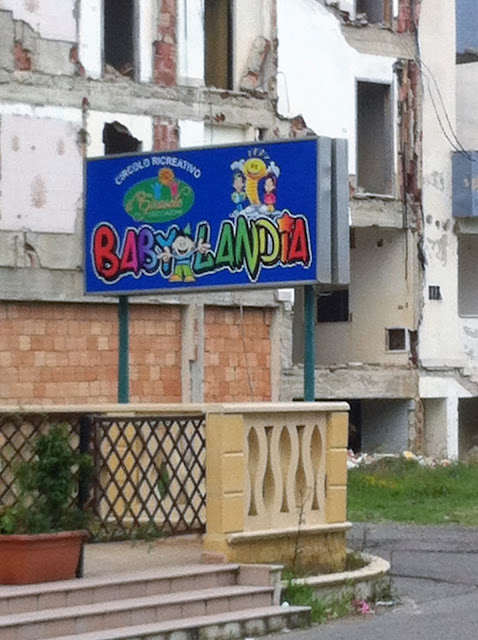Sunday 6th March
One reason to travel is to have your assumptions and prejudices challenged. Travel really can live up to its clichéd reputation and broaden the mind. One of my particular prejudices is that Britain possesses the most god forsaken coastal towns in Western Europe. It is no accident that the Office of National Statistics Index of Multiple Deprivation pin-points the most blighted ward in the country as just to the south of Clacton-on-Sea. However, this is only the case because the index is limited to English wards. Were the statistics UK-wide then surely Rhyl would top the charts as by far the most dreadful seaside town.
One reason to travel is to have your assumptions and prejudices challenged. Travel really can live up to its clichéd reputation and broaden the mind. One of my particular prejudices is that Britain possesses the most god forsaken coastal towns in Western Europe. It is no accident that the Office of National Statistics Index of Multiple Deprivation pin-points the most blighted ward in the country as just to the south of Clacton-on-Sea. However, this is only the case because the index is limited to English wards. Were the statistics UK-wide then surely Rhyl would top the charts as by far the most dreadful seaside town.
I have to admit I have a bit of a soft spot for these places, not only seeking them out, but reading avidly writers such as Jonathan Meade and Owen Hathersley who have developed a bit of a cult following as aficionados of the drab and tawdry. Though it's probably fair to say nothing has quite captured the drab-town essence better than Half Man Half Biscuit's paean to urban desolation - 'National Shite Day'.
In all our travels, even considering such desperate holes as the Pilar de Horadada, Marseillian Plage or the shanty town outskirts of Figueira da Foz, nowhere comes close to matching Rhyl as the epitome of seaside grim. Until today, when we pedalled into Ciro Marina. Words fail me, luckily I did take some pictures:
It's not the dilapidation that is saddening, nor even the poverty, not everywhere can be lovely or well-to-do, poor places exist everywhere. It's the human effect that is dis-spiriting. Nothing seemed cared for, piles of debris littered the streets, some parking bays had ancient cars in them with flat tyres, abandoned and wrecked. Most buildings seemed to either half built, or falling down. Some achieved the apparently impossible of achieving these opposite states simultaneously.
Ciro Marina is not a seaside village, but a town of 14,000 souls. On this overcast, chilly Sunday afternoon a few were out and about, gathered at street corners or outside a Tabacchi, chatting. Only men. No women to be seen, apart from three teenage girls sitting on play-park swings designed for kids half their age. They snapped a few photos of each other with their phones, compared them, then shrieked with laughter. What will become of them here? Perhaps they will do well at school, progress to the new university we spotted nearby at Catanzaro and move out. That would would be the exception sadly, all the evidence points to poverty being inter-generational as the jargon says. Ciro Marina is no more likely to transform itself than Rhyl; it's a depressing thought.
Luckily the ACSI site next to the place, one of the few open all year in this part of Italy, is nowhere near as god-forsaken as the immediate surroundings. In fact Punta Alice is not bad at all, with a beach-side location, a wooded ambiance and old, but good facilities - showers and washing-up sinks with plenty of hot water, and reliable free wifi. Perfecto for an overnight stop on the way to Sicily, better certainly than the site further south on the west coast of Calabria at Nicorata Marina.
Why you might want to linger here is baffling, yet there were a handful of German and Scandinavian vans on site seemingly set-up for a long stay. The residents seemed none too affable, and many of the menfolk sported beards which were decidedly gnome-like. Other highly disturbing aspects of their demeanour included a propensity to smoke Bavarian-style carved pipes.
Why you might want to linger here is baffling, yet there were a handful of German and Scandinavian vans on site seemingly set-up for a long stay. The residents seemed none too affable, and many of the menfolk sported beards which were decidedly gnome-like. Other highly disturbing aspects of their demeanour included a propensity to smoke Bavarian-style carved pipes.
Too weird! Time to go....
e
e














No comments:
Post a Comment